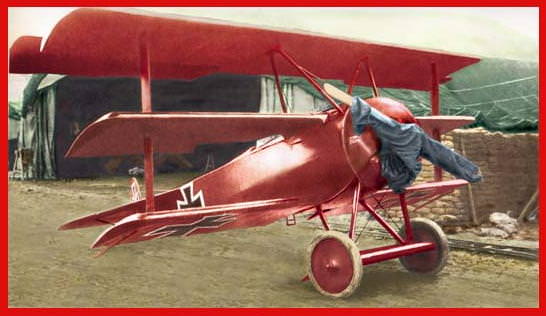
In 1917, Manfred Albrecht Baron von Richthofen (1892-1918), sometimes known as the Red Baron, wrote an autobiography. At that time he was Germany’s leading ace with 52 claimed kills. He later claimed 80 kills before he was shot down.
His autobiography was almost certainly reviewed and censored by German authorities, although to what extent is hard to say.
I was re-reading it recently (I last read it when I was a kid) and a few passages stood out to me. These all occurred while he was serving with the Uhlans first in Russia and then in France at the start of the war.
On pages 47-48 for their operations at the border village of Kieltze in Poland (part of the Russian Empire), probably around 2 August 1914, Richthofen writes:
What should I do in order not to be noticed by the villagers? My first idea was to lock up the “pope.” [Russian priest] We fetched him from his house, to his great surprise. I locked him up among the bells in the church tower, took away the ladder, and left him sitting up above. I assured him that he would be executed if the population should show any hostile inclinations. A sentinel placed on the tower observed the neighborhood.
and five days later, only Richthofen and one other man were in the village:
…for the street swarmed with Cossacks…Most of them had lanterns, and they acted very incautiously and were very noisy. I estimated that they were from twenty to thirty. One had left his horse and gone to the “pope. whom I had let off the day before. Immediately it flashed through my brain, “Of course we are betrayed!…After having rested a few hours, our visitors rode away.
It is not stated if the “pope” went away with the Cossacks or if anything was done after the Cossacks left.
On pages 52-53 while they were at Arlon, Belgium in August 1914 Richthofen writes:
At Arlon I climbed the steeple in accordance with the tactical principles which we had ben taught in peace time…When I came down again I was surrounded by a crowd of angry young men who made hostile eyes, and who talked threateningly in undertones. My bicycle had, of course, been punctured, and I had to go on foot for half an hour. This incident amused me. I should have been delighted had it come to a fight. I felt absolutely sure of myself with a pistol in my hand.
Later on I hear that the inhabitants had behave very treacherously several days previously toward our cavalry, and later on towards our ambulances. It had therefore been found necessary to place quite a number of these gentlemen against the wall.
I assume the most negative interpretation of “against the wall” is correct. According to Wikipedia on Arlon: “Arlon was one of the first victims of the German invasion in 1914 as 121 inhabitants were executed on 26 August, on the orders of Colonel Richard Karl von Tessmar.” and in the Wikipedia article on Tessmar: “On 26 August, 121 Belgian civilians were executed at Arlon railway station on his order.”
On page 57 while they on Virton on or after 22 August 1914 Richthofen writes:
So both Loen and I had quarters for ourselves and our men…The monks were extremely amiable. They gave us as much to eat and to drink as we cared to have, and we had a very good time…We settled down as if we were on manoeuvres, and as if we were in the house of a delightful host and friend. At the same time it should be observed that thee days later we hanged several of our hosts to the lanterns because they could not overcome their desire to take a hand in the war. But that evening they were really extremely amiable.
This last one is significant as there were several major war crimes conducted by the German Army in that area. Dinant with 674 executed by Saxon troops being the largest. According to Wikipedia article on Virton “On August 22, 1914, at the onset of World War I, hundreds of inhabitants were summarily executed by the invading German army…” This is worth looking at: https://en.wikipedia.org/wiki/Rape_of_Belgium
So I assume I am correct in reading this account as an open admission that he knew of and participated in war crimes and then published them in a censored wartime autobiography?

I agree with your reading. I assume by 1917 what Richthofen put in his book was old news and the Germans didn’t need to worry about it being a new revelation. Possibly by giving a soft pedal version they may have felt that it showed accusations against them were overstated?
He might have been thinking in terms of “war as usual” rather than in terms of “war crimes!”
I think that is the case, which is why these cases are mentioned in a autobiography published in 1917.
The fact that he also describes this period as “the most beautiful time of the war” and expresses the desire to relive it is pretty disturbing.
Thanks. Found the quote in my copy (page 53). It was at the end of his section called “To France” and before the section dated 21-22nd August, 1914. The full quote is:
I gather he wrote this around July 1917 while he was in the hospital.